On April 24, the Chamber of Commerce of Metropolitan Montreal held its essential Strategic Forum on Transportation Infrastructure. This 12th edition of the event brought together more than 300 people and some 30 panelists, as well as Geneviève Guilbault, Deputy Premier and Minister of Transport and Sustainable Mobility.
It was an opportunity to reflect on the major infrastructure projects underway and to come in the Greater Montréal area, the management of downtown construction sites and the place of innovation in the optimization and attractiveness of the transportation industry. Overview of a morning of enriching conferences.
“Holding this event annually allows us to take stock of transportation infrastructure and get major projects back on track. That’s what happened with the REM de l’Est, the Turcot Interchange and the Samuel De Champlain Bridge.” – Michel Leblanc, President and CEO, Chamber of Commerce of Metropolitan Montreal
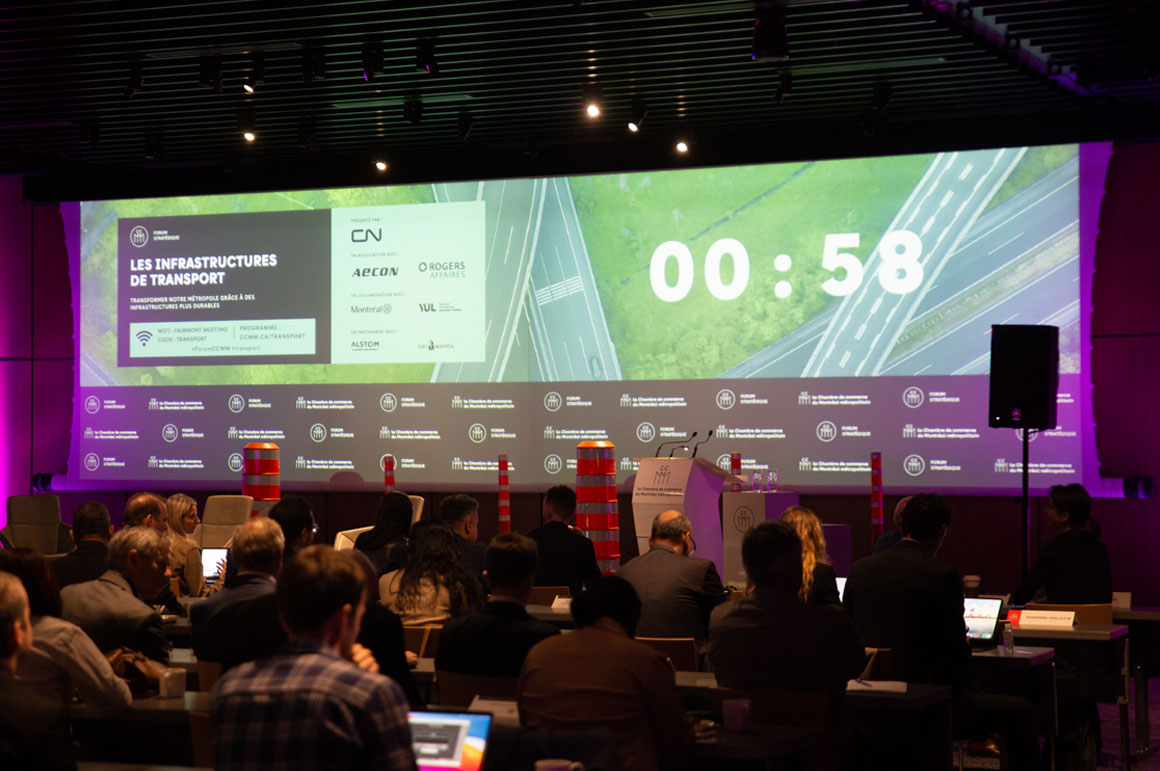
Forum stratégique sur les infrastructures de transport
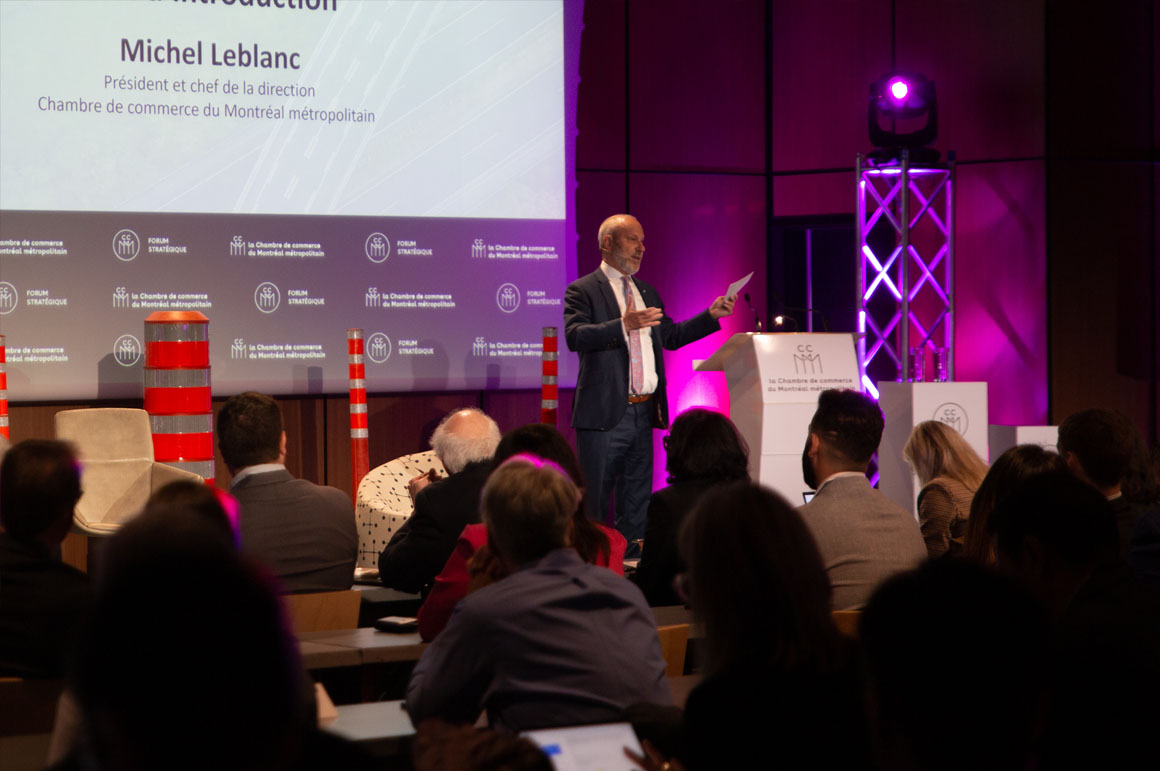
Michel Leblanc, président et chef de la direction, Chambre de commerce du Montréal métropolitain
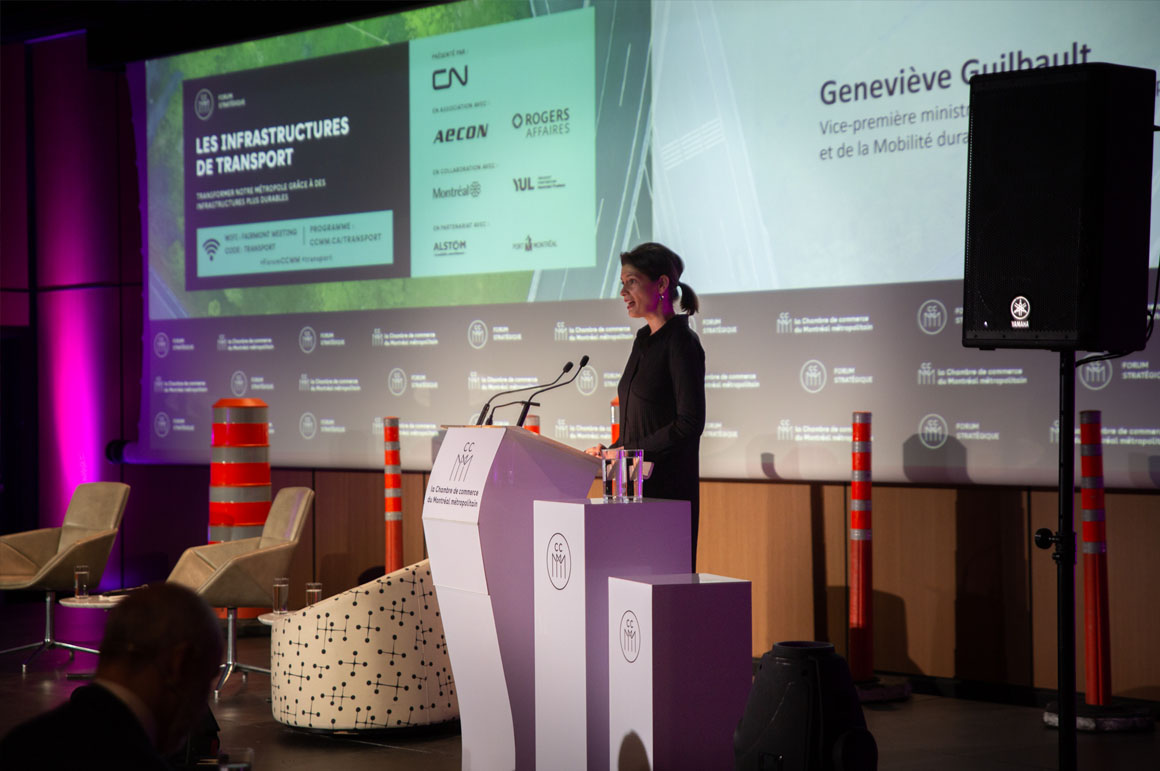
Geneviève Guilbault, vice-première ministre et ministre des Transports et de la Mobilité durable
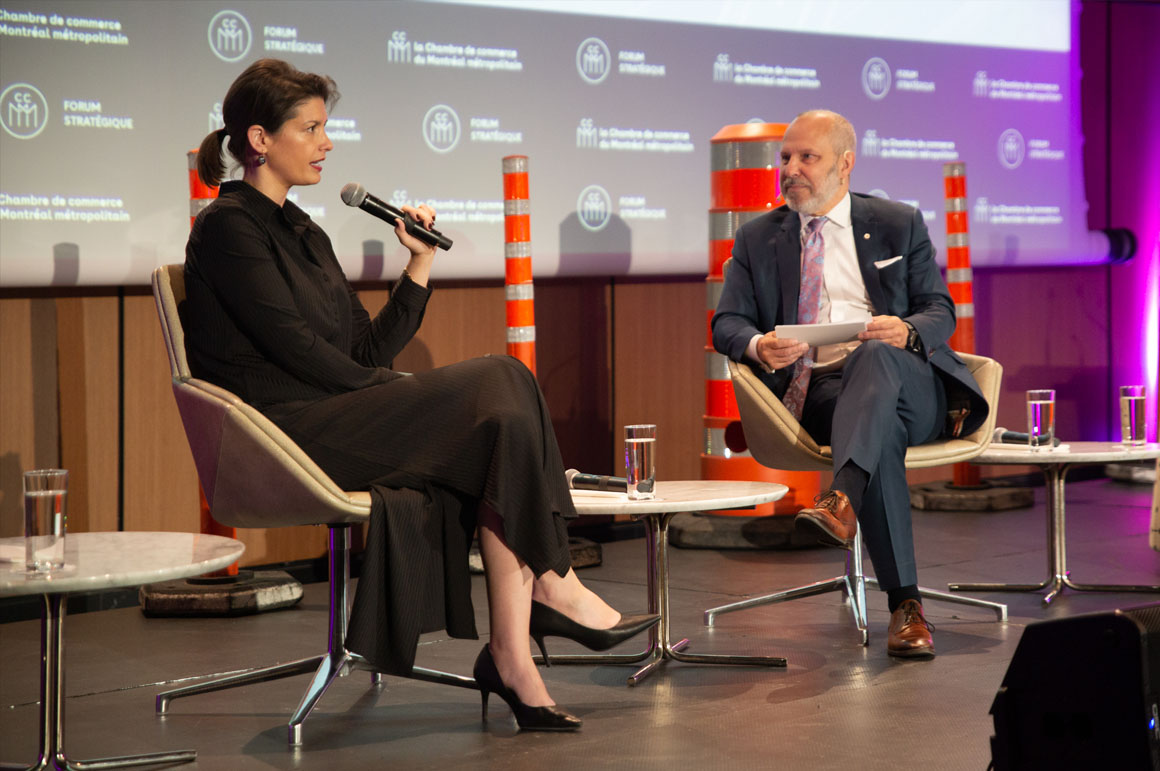
Discussion entre Geneviève Guilbault et Michel Leblanc
 Previous
Previous  Next
Next
Announcements for better worksite management
Our study, Minimum traffic jams, unveiled in the winter of 2023, the Summit on construction sites organized by the Ville de Montréal last spring and news articles reporting on construction sites that keep taking up space in the city and elsewhere in the province have prompted the government to review its practices. The Ministère des Transports et de la Mobilité durable is responsible for 486 km of roads on the island of Montréal and for several major projects. By comparison, the City manages 4,500 km of roads.
That is why, at our forum, Deputy Premier and Minister of Transport and Sustainable Mobility, Geneviève Guilbault, announced a series of measures aimed at mitigating the impact of construction sites and making them more pleasant. This includes replacing some orange cones with more compact models and improving existing signage, as well as establishing a public works management innovation cell.
“Construction is a necessary evil, but I am committed to working with all stakeholders to guarantee that citizens experience less inconvenience. In order to improve the coordination of work sites, we wish to set up an innovation cell to identify best practices. The various players each have their own platform for managing obstacles; so we’re looking into having interoperability or a connection to be more efficient in our use of solutions.” – Geneviève Guilbault, Deputy Premier and Minister of Transport and Sustainable Mobility
Public transit as a cornerstone of Montréal’s economic development
“Today’s major transportation projects represent a collective opportunity to rethink the evolution of public transit and governance. Public transit is a lever for Montréal’s economic development. It’s high time for a paradigm shift.” – Sophie Mauzerolle, executive committee member responsible for transportation and mobility, Ville de Montréal
The pandemic has changed the way people travel. The panelists at our Forum agree that to remain attractive and meet a need, a multimodal transportation offer needs to be tailored for greater efficiency. Creating an offer that is on target will be essential to keep economic development healthy throughout the city. We are reminded that public transit is an investment, not an expense.
That said, collecting and leveraging data will be crucial to success. Benoît Gendron, Director General of the ARTM, would like to get an overview of all the changes that are currently taking place in order to secure a better understanding of transit. As such, he announced that a call for tenders would be summer 2023 for the creation of a platform that encompasses all modes of transport. This one-stop shop would be available within three years.
Frequency, fluidity and agility are what drive people to take public transit.” – Marie Hélène Cloutier, Executive Director, Customer Engagement, Partners and Mobility Innovation, exo
At exo, the organization shows evidence that it is possible to converge users towards public transit. Approximately 40% of the people who use its “transportation on demand” service in Belœil were not previously public transit users. But you still need to meet a need and have a data-driven retention and acquisition strategy in place.
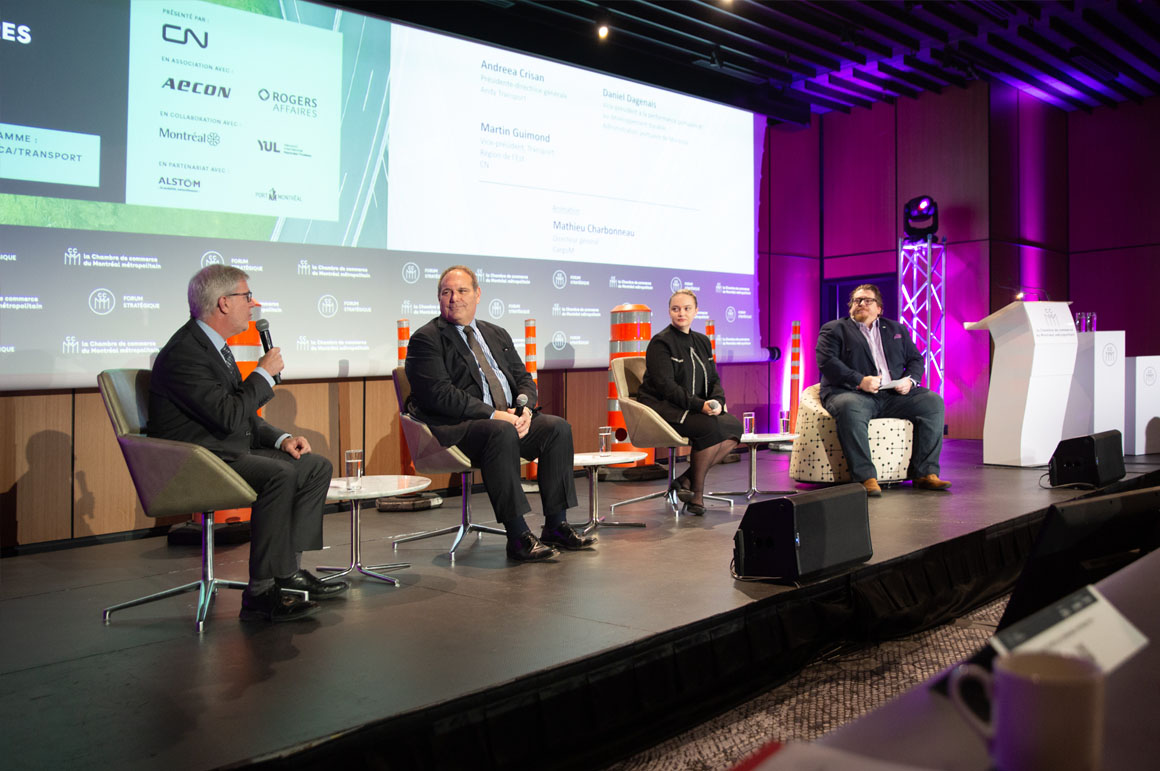
Panel sur les grands projets de transport de marchandises
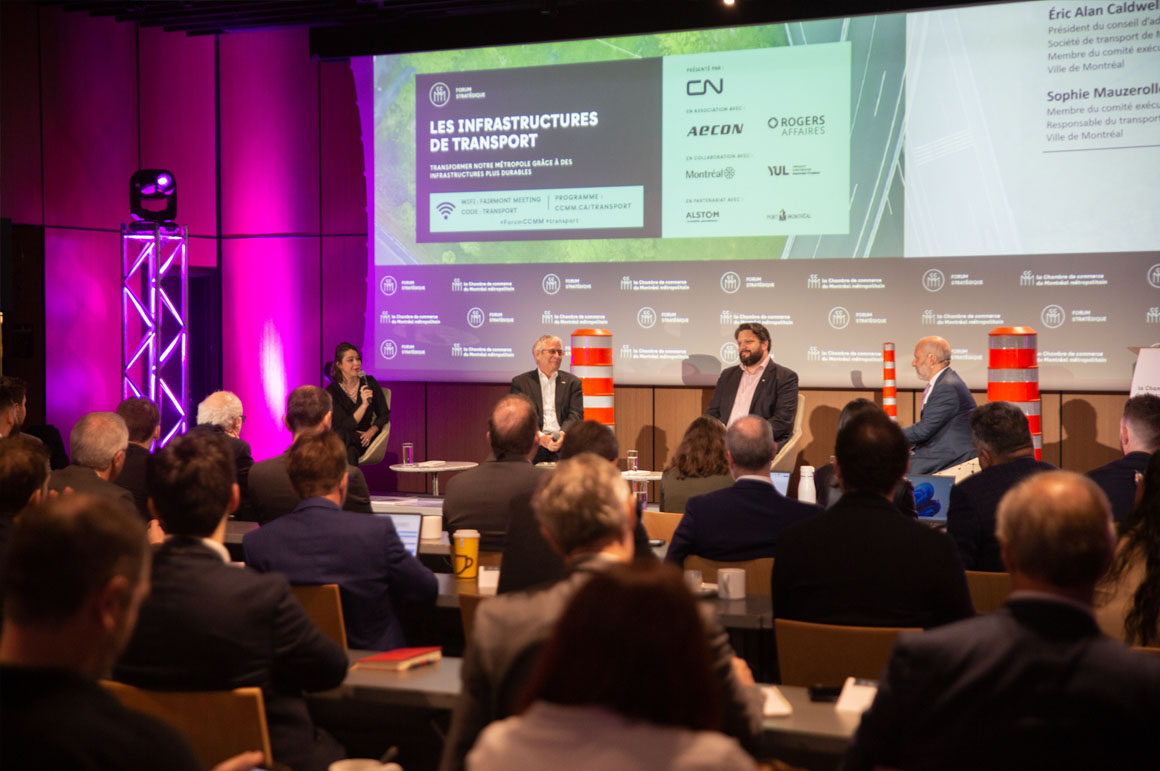
Panel sur les grands projets de transport collectif
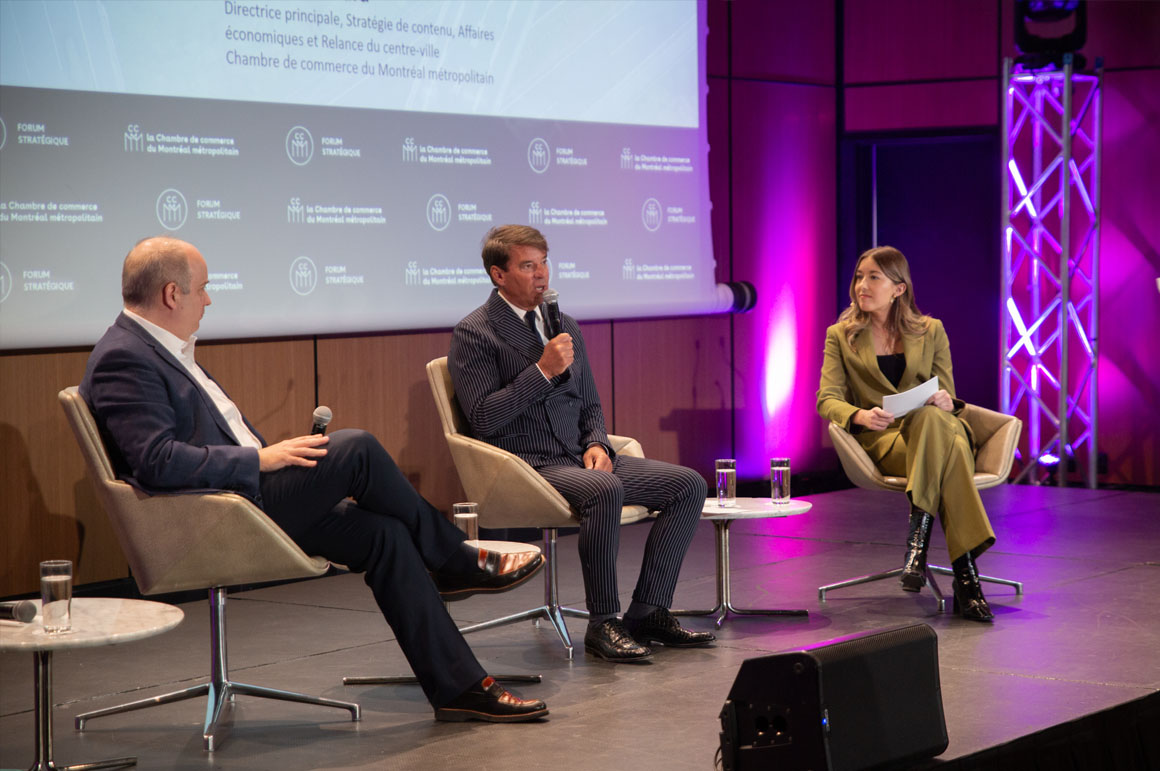
Panel sur la connectivité internationale
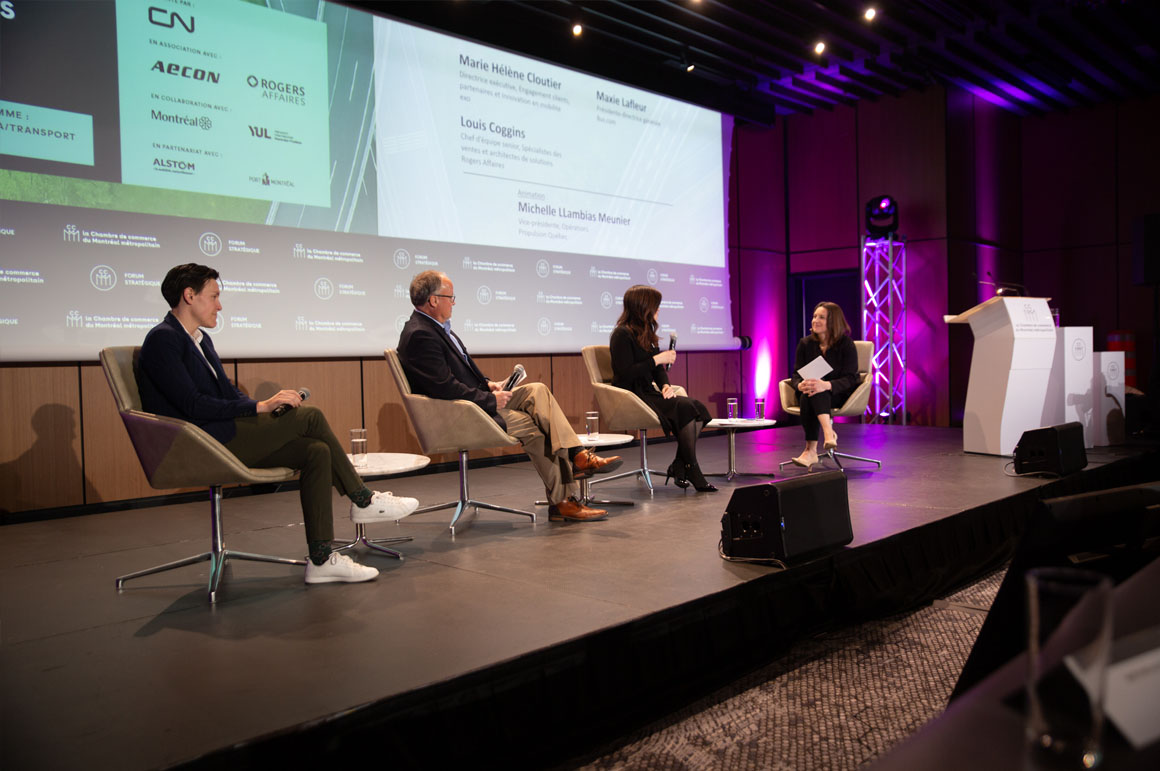
Panel sur les solutions de transport innovantes et écologiques pour le transport de demain
 Previous
Previous  Next
Next
Infrastructure at the heart of improved transport network connectivity: high-frequency rail and high-speed train
A major transportation infrastructure project in the news is the high-frequency rail and high-speed train connecting Montréal to Toronto. Which option should be favoured? We looked at both sides of the coin at our event.
The HFR will provide frequent downtown-to-downtown travel on an hourly basis.” – Vincent Robitaille, Assistant Deputy Minister, High Frequency Rail, Transport Canada
The advantages of this option include lower costs for taxpayers (costs would be doubled if the HST option was chosen, according to Vincent Robitaille), more frequent service with better travel times, and the choice of an environmentally friendly solution – more than 90 per cent of the lines would be electrified on more than 1,000 km of track.
However, some industry players are calling for a high-speed train instead. A possible compromise would be operating an HST on some sections of the HFR route.
This is a moment that we can’t afford to miss. It’s difficult to assess the costs because no studies have been done. We need to decide on a train route first before we’re able to determine the cost.” – Ian Hodkinson, Head of Technical Sales and Marketing ‒ Transit Systems, Alstom
In short, our Forum has once again highlighted the fact that transportation infrastructure can positively redefine the economic development of Greater Montréal and Quebec as a whole. Despite the challenges the industry currently faces, the transportation projects of the past few years provide lessons and solutions to improve the current transportation offer, optimize its efficiency and implement more sustainable practices for the benefit of users. The 2023 edition of the Forum allowed us to take stock of the current work and projects and to discuss the fluidity of transit in the city.
About the Strategic Forum on Transportation Infrastructure
The Strategic Forum on Transportation Infrastructure was organized by the Chamber of Commerce of Metropolitan Montreal and presented by CN. It was presented in association with Aecon and Rogers Business; in collaboration with the Ville de Montréal and YUL–Montréal-Trudeau International Airport; and in partnership with Alstom and the Port of Montreal.